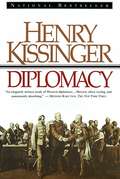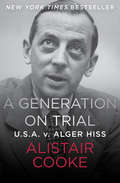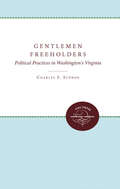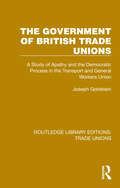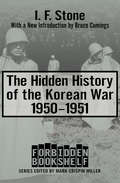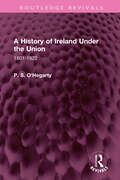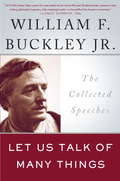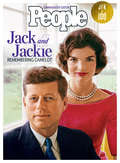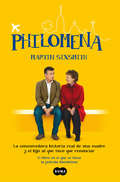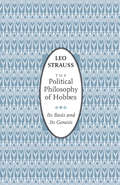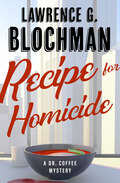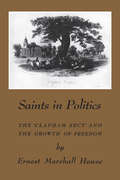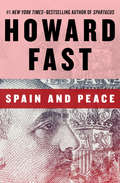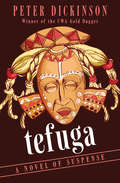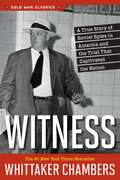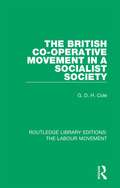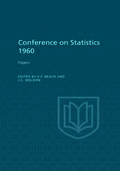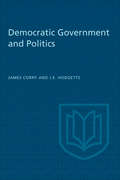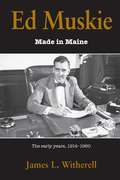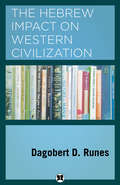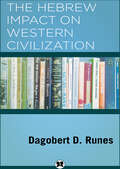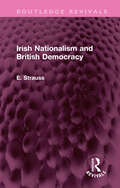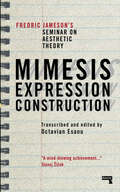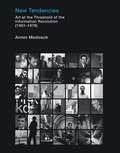- Table View
- List View
Diplomacy (Política Y Derecho Ser.)
by Henry KissingerTHE SEMINAL WORK ON FOREIGN POLICY AND THE ART OF DIPLOMACY Moving from a sweeping overview of history to blow-by-blow accounts of his negotiations with world leaders, Henry Kissinger describes how the art of diplomacy has created the world in which we live, and how America's approach to foreign affairs has always differed vastly from that of other nations. Brilliant, controversial, and profoundly incisive, Diplomacy stands as the culmination of a lifetime of diplomatic service and scholarship. It is vital reading for anyone concerned with the forces that have shaped our world today and will impact upon it tomorrow.
A Generation on Trial: U.S.A. v. Alger Hiss
by Alistair CookeThe story of Whittaker Chambers, HUAC, and the case that defined the McCarthy era, as reported by one of the twentieth century&’s most respected journalists. In August 1948, a former Communist Party member named Whittaker Chambers testified before the House Un-American Activities Committee that a secret cell of Communists had infiltrated Franklin D. Roosevelt&’s New Deal administration. Chief among the conspirators, according to Chambers, was Alger Hiss, a former government attorney and State Department official who had taken part in the Yalta Conference and been instrumental in the creation of the United Nations. Hiss&’s categorical denial of the charges, which led Chambers to produce evidence linking both men to Soviet espionage, quickly escalated into one of the most divisive episodes in American history and ignited the widespread fear and paranoia of the McCarthy era. As the US correspondent for the Manchester Guardian, Alistair Cooke reported extensively on the Hiss affair. In an atmosphere that he memorably compares to that of a seventeenth-century religious war, Cooke maintained a clear head and his signature intellectual rigor. A Generation on Trial, which begins with a brilliantly succinct summary of the case—&“We are about to look at the trials of a man who was judged in one decade for what he was said to have done in another&”—is both a fascinating historical document and a stirring example of journalistic integrity.
Gentlemen Freeholders: Political Practices in Washington's Virginia (Published by the Omohundro Institute of Early American History and Culture and the University of North Carolina Press)
by Charles S. SydnorHere is a vivid picture of late eighteenth-century Virginia's keen and often hot-tempered local politics. Sydnor has filled his book with the lively details of campaign practices, the drama of election day, the workings of the county oligarchies, and the practical politics of that training school for statesmen, the Virginia House of Burgesses.Originally published in 1952. (This book was also published under the title American Revolutionaries in the Making in 1965.)A UNC Press Enduring Edition -- UNC Press Enduring Editions use the latest in digital technology to make available again books from our distinguished backlist that were previously out of print. These editions are published unaltered from the original, and are presented in affordable paperback formats, bringing readers both historical and cultural value.
The Government of British Trade Unions: A Study of Apathy and the Democratic Process in the Transport and General Workers Union (Routledge Library Editions: Trade Unions #8)
by Joseph GoldsteinOriginally published in 1952, The Government of British Trade Unions analyses the government, in theory and in practice, of one of Britain’s most important labour organizations – The Transport and General Works Union in the first half of the 20th Century. It is an appraisal of the role of the rank and file within this union of over one million members, to determine both the opportunity for, and the extent of their participation in, this State within a State. Original sources and materials, which had not previously been made public in relation to any major British or American Trade Union, were used to ascertain member turnover, participation in elections, attendance at Branch meetings and the effect of the repeal of the Trade Disputes Act on Labour Party membership. The study is of great interest both for the light it throws on the general question of Trade Unions in the modern State, and for its analysis of the Transport and General Works Union itself.
The Hidden History of the Korean War, 1950–1951: 1950-1951 (Forbidden Bookshelf #10)
by I. F. Stone&“A great journalist&” raises troubling questions about the forgotten war in this courageous, controversial book—with a new introduction by Bruce Cumings (The Baltimore Sun). &“Much about the Korean War is still hidden, and much will long remain hidden. I believe I have succeeded in throwing new light on its origins.&” —From the author&’s preface In 1945 US troops arrived in Korea for what would become America&’s longest-lasting conflict. While history books claim without equivocation that the war lasted from 1950 to 1953, those who have actually served there know better. By closely analyzing US intelligence before June 25, 1950 (the war&’s official start), and the actions of key players like John Foster Dulles, General Douglas MacArthur, and Chiang Kai-shek, the great investigative reporter I. F. Stone demolishes the official story of America&’s &“forgotten war&” by shedding new light on the tangled sequence of events that led to it. The Hidden History of the Korean War was first published in 1952—during the Korean War—and then republished during the Vietnam War. In the 1990s, documents from the former Soviet archives became available, further illuminating this controversial period in history.
A History of Ireland Under the Union: 1801-1922 (Routledge Revivals)
by P. S. O'HegartyOriginally published in 1952, A History of Ireland Under the Union was written by an historian who played an active part in the political events of the later part of the period. In Ireland there are two national traditions: that of the Kingdom of the Gael, established at the end of the 4th Century A.D. and the other colonial tradition evolved by the descendants of various generations of Planters from England. The book provides a full account of 19th Century Irish history and shows how the colonial nationalists discarded their nationalism after 1801 and how the emerging Gael, under Daniel O’ Connell adopted and fused the two traditions into an Irish national tradition which was vitalised by Irish literature and culture. Containing much original source material the book throws light on aspects of Irish history whose significance is often overlooked such as the part played by the RIC and the Secret Societies in Ireland and the USA.
Let Us Talk of Many Things: The Collected Speeches
by William F. Buckley Jr.Let Us Talk of Many Things, first published in 2000, brings together Buckley's finest speeches from throughout his career. Always deliciously provocative, they cover a vast range of topics: the end of the Cold War, manners in politics, the failure of the War on Drugs, the importance of winning the America's Cup, and much else. Reissued with additional speeches, Let Us Talk of Many Things is the ideal gift for any serious conservative.
PEOPLE Jack and Jackie: Remembering Camelot
by The Editors of PEOPLETo mark the centennial of John F. Kennedy's birth, the editors of People celebrate his life, his family and his presidency. Filled with intimate historic photographs, this collector's edition captures the glamour of the age and the cultural shift he and First Lady Jacqueline Kennedy brought to the White House and the nation-from Kennedy's upbringing and launch into politics, to their courtship, wedding and young family; through the crises of the early 1960s at home and abroad to the tragic and sudden end to the era that came to be known as Camelot.
Philomena
by Martin SixsmithNew York Times Bestseller. Now a major motion picture starring Judi Dench and Steve Coogan and nominated for four Academy Awards: the heartbreaking true story of an Irishwoman and the secret she kept for 50 years. When she became pregnant as a teenager in Ireland in 1952, Philomena Lee was sent to a convent to be looked after as a "fallen woman. ” Then the nuns took her baby from her and sold him, like thousands of others, to America for adoption. Fifty years later, Philomena decided to find him. Meanwhile, on the other side of the Atlantic, Philomena’s son was trying to find her. Renamed Michael Hess, he had become a leading lawyer in the first Bush administration, and he struggled to hide secrets that would jeopardize his career in the Republican Party and endanger his quest to find his mother. A gripping exposé told with novelistic intrigue, Philomena pulls back the curtain on the role of the Catholic Church in forced adoptions and on the love between a mother and son who endured a lifelong separation.
The Political Philosophy of Hobbes
by Leo Strauss Elsa M. SinclairIn this classic analysis, Leo Strauss pinpoints what is original and innovative in the political philosophy of Thomas Hobbes. He argues that Hobbes's ideas arose not from tradition or science but from his own deep knowledge and experience of human nature. Tracing the development of Hobbes's moral doctrine from his early writings to his major work The Leviathan, Strauss explains contradictions in the body of Hobbes's work and discovers startling connections between Hobbes and the thought of Plato, Thucydides, Aristotle, Descartes, Spinoza, and Hegel.
Recipe for Homicide (The Dr. Daniel Webster Coffee Mysteries)
by Lawrence G. BlochmanA public relations man finds himself in hot water when murder is added to the mix at the soup company where he works. Luckily, Dr. Coffee is on the case. After crowning a Carrot Queen—the fastest carrot peeler at the factory—the Barzac Soup Company is on a public relations roll under director Robert Gilmore. It plans to raise its profile—and stock price—even higher by introducing field rations for the US Army. But when an employee drops dead hours after tasting the field rations, Gilmore has a PR nightmare on his hands . . . With his job on the line, Gilmore seeks the help of pathologist Dr. Daniel Webster Coffee, a man who enjoys good food as much as the unassailable practice of good medicine. But what he discovers raises the stakes: The victim died of arsenic poisoning. The rations could have been deliberately sabotaged as an act of war. As tensions reach a boiling point, Gilmore finds his past, his heart, and his life on the line . . . &“Blochman fans generally tend to think of him as more intellectual than the average pulp author, and based on one book, we can&’t disagree. Recipe is scientific detection, and plenty detailed enough for readers who like that sort of thing . . . for 1954, this is nuanced stuff.&” —Pulp International
Saints in Politics: The 'Clapham Sect' and the Growth of Freedom
by Enrest HowseThis book gives a picture of an important religious reform group in action during the period of the French Revolution, Napoleon, and the Industrial Revolution. In this period of injustice and misery the British ruling classes, frightened by the excesses of the French Revolution, determined, at a time when economic life was changing at a rate unequalled for centuries, that existing laws and institutions should not change. And yet from this time came the moral, philanthropic, and religious ideas which transformed later England and resulted in the abolition of the slave trade, educational reforms in India, emancipation of Negroes in the British possessions, popular education and the growth of Sunday schools in England, reform of the whole penal and judicial system, industrial and parliamentary reform, and a new spirit of religious tolerance and philanthropy. The moving force in human progress at this epoch was a "brotherhood of Christian politicians" lampooned in Parliament, during their lifetime, as "the Saints" and remembered in history as "The Clapham Sect," led by Wilberforce. Dr. Howse brings together for the first time in this book material on all the activities of the Sect. He gives us sketches of members of the Set, their life as a group at home, and in the midst of their campaigns, where novel methods and ceaseless labour brought results out of all proportion to the size of the group.
Spain and Peace
by Howard FastFast&’s powerful denunciation of Spanish dictator Francisco Franco, and a remarkable historical document of Spain&’s fight for freedom from governmental oppressionHoward Fast was a longtime proponent of the antifascist movement in Spain. During the Spanish Civil War, Fast supported a hospital for Popular Front forces, and in 1950 he was sentenced to three months in jail for refusing to give the names of other supporters of that hospital to the House Un-American Activities Committee. In this pamphlet, published in 1951, Fast gives an overview of Spain under the rule of General Francisco Franco, including the mass strikes that were organized to weaken him. Fast&’s fervent appeals to readers to reject American military agreements with Spain demonstrate his passionate opposition to fascism. As Fast writes, &“Spain fights on, and in those three words there is a miracle. . . . There is no Spanish worker, professional, intellectual or peasant who strikes a blow for freedom without our being intimately concerned.&” This ebook features an illustrated biography of Howard Fast including rare photos from the author&’s estate.
Tefuga: A Novel of Suspense
by Peter DickinsonIn this evocative tale of suspense from CWA Gold Dagger winner Peter Dickinson, a British diplomat's wife in Nigeria inadvertently precipitates a senseless tragedy, and six decades later, her son becomes caught up in a maelstrom of violent political corruption Filmmaker Nigel Jackland has come to northern Nigeria to work on a new project: a documentary based on the personal diary entries of his mother. Sixty years have passed since Betty Jackland first accompanied her husband, Ted, to this colonial African backwater, resolving to be a perfect helpmate and wife to Britain's district officer in the emirate of Kiti. But Betty's fascination with the local Kitawa tribe, innate sense of justice, and irrepressibly independent spirit mean she could never turn a blind eye to the suffering of oppressed women--particularly the abused wives of the ruling emir. She never imagined that her strong words and actions could have violent consequences in the shadow of Tefuga Hill--or that the echoes of the tragedy would resound dangerously in the life of her own son many years on. Linking two stories separated by more than half a century and relating them in alternating chapters, Tefuga is an enthralling, evocative, and suspenseful tale of corruption, imperialism, race, and murder. A master of both style and substance, Dickinson brilliantly re-creates times and places in stunning detail, transporting readers to an Africa so remarkably realistic they can almost feel the equatorial winds on their faces.
Witness (Cold War Classics)
by Whittaker Chambers#1 New York Times bestseller for 13 consecutive weeks!First published in 1952, Witness is the true story of Soviet spies in America and the trial that captivated a nation. <P><P>Part literary effort, part philosophical treatise, this intriguing autobiography recounts the famous case and reveals much more. Chambers' worldview and his belief that "man without mysticism is a monster" went on to help make political conservatism a national force. <P><P>Regnery History's Cold War Classics edition is the most comprehensive version of Witness ever published, featuring forewords collected from all previous editions, including discussions from luminaries William F. Buckley Jr., Robert D. Novak, Milton Hindus, and Alfred S. Regnery.
The British Co-operative Movement in a Socialist Society (Routledge Library Editions: The Labour Movement #9)
by G. D. ColeFirst published in 1951. The purpose of this study was to consider the prospects of the British Co-operative movement in all its main aspects and not as a consumers’ movement only. The author examines ways in which the Co-operative enterprise, in its various forms, could best be fitted into the economic structure of the coming society. This title will be of great interest to scholars and students of labour history.
Conference on Statistics 1960
by J. C. Weldon E. F. BeachIn 1958 the Canadian Political Science Association established a committee to look into ways and means of improving statistical research in the social sciences in Canada. One of the ways in which the committee thought this could be done was by establishing an annual forum where papers could be presented and discussed. Eight papers given at the first Conference at Queen's University are contained in this volume. Diverse alike in subject and statistical method---as indeed a collection of papers reflecting the purpose of the founding committee is bound to be---the papers as printed incorporate the discussion that attended their presentation in 1960.The papers are: K.A.H. Buckley, "Historical Estimates of Internal Migration in Canada,"; Richard E. Du Wurs, Robert Batson, Margaret Daffron, "The 'Mass Society' and 'Community' Analyses of the Social Present"; P.J. Giffen, "Canadian Criminal Statistics"; E.J. Hanson, "The Post-war Rise of the Crude Petroleum Industry"; Gideon Rosenbluth, "Salaries of Engineers and Scientists, 1951"; David N. Solomon, Agnes M. Fergusson, "The Distribution and Functions of Canadian Engineers and Scientists"; K.W. Studnicki-Gizbert, "The Structure and Growth of the Canadian Air Transport Industry"; T.R. Vout, "The Canadian Manufacturing Industry, 1900-57."
Democratic Government and Politics: Third Revised Edition
by James Corry John HodgettsCompletely revised and enlarged edition (1951) of a book which has become a standard work on comparative government. This edition brings up to date the material on institutions and practices of government in Britain, the United States, and Canada, and analyses more fully the relationship of democratic institutions and practices to the essentials of the democratic creed.
Ed Muskie: Made in Maine
by James L. WitherellThis insightful biography covers the life and career of Edmund "Ed" Muskie, from his childhood in Rumford, Maine, to his years as the governor of Maine. Born in a paper mill town in Maine's western foothills, Muskie was one of six children of a Polish immigrant and a Polish-American mother whose English was worse than her husband's. His arc through his formative years was singular and unpredictable, an American story that looks plausible only in hindsight. Commemorating the centenary of his birth, this biography of Ed Muskie through his two terms as Maine's governor tells how the son of an immigrant tailor grew up to become one of the most consequential politicians in American history.
Gandhi and Marx
by K. G. MashruwalaWhat can be a more fascinating study to us in the present age than that of a comparison between the ideologies of Gandhi, the great soul (mahatma), and Marx, the great thinker (mahamuni)? If the last hundred years or so of the social life of humanity were boiled away, the residue will most likely be these two great names. Lenin is ingested in Marx. And the shadow of Tolstoy spreads over Gandhi. The two ideologies stand face to face, each bent on swallowing up the other. — VINOBA
The Hebrew Impact on Western Civilization
by Dagobert D. RunesAn eye-opening classic volume on the enduring cultural impact of the Jewish people This authoritative work considers the creative and cultural influence of the Jews throughout our time. At more than 800 pages, D. D. Runes has complied a mid-twentieth century account of the various contributions in many spheres in which the Jews have had an impact on western civilization. Eminent scholars consider the ways in which the Jews contributed toward the making of modern society and helped in raising human standards and values. Richard Van Dyck, in "The Jewish Influence on Journalism," observes that the preponderance of Jewish newspapermen disproves the commonly held belief that Jewish journalism is "necessarily subversive." William B. Ziff's "The Jew as Soldier, Strategist and Military Adviser" delineates the successes of Jewish military forces throughout history. Dr. Abraham I. Katsh discusses "The Hebraic Foundations of American Democracy," noting the influence of Hebrew Scriptures on standards of conduct in western civilization. Curtis Lubinski's "The Jew in Drama, Theatre, and Film" traces the success of Jewish performers and dramatists. The essays compiled in this volume are a fascinating and expansive look at the far-reaching impact Jews have had on Western life.
The Hebrew Impact on Western Civilization
by Dagobert D. RunesThis wide-ranging anthology examines the enduring cultural impact of the Jewish people and their many contributions to the creation of modern society.Edited by philosopher and intellectual historian Dagobert D. Runes, The Hebrew Impact on Western Civilization is a scholarly and authoritative account of the many spheres in which the Jews have impacted Western civilization. A diverse collection of eminent scholars consider how the Jews altered the course of the contemporary world and helped raise the standard of human values. William B. Ziff&’s &“The Jew as Soldier, Strategist and Military Adviser&” delineates the successes of Jewish military forces throughout history. Dr. Abraham I. Katsh discusses the &“Hebraic Foundations of American Democracy,&” noting the influence of Hebrew Scriptures on standards of conduct in western civilization. These and other essays offer a fascinating and expansive look at the far-reaching impact Jews have had on Western life.
Irish Nationalism and British Democracy (Routledge Revivals)
by E. StraussOriginally published in 1951, this study of the Irish nationalist movement examines social forces behind the ceaseless agitation in Ireland from the 18th to the 20th Century and gives an account of the influence of the Irish question on the political development of Great Britain. It analyses the forces which moulded Irish and English history during the period 1801-1921. In particular it shows in what way Irish problems affected the important developments of English history during the last century and a half: religious toleration, the Great Reform Bill, the Repeal of the Corn Laws, the growth of the modern party system, and the Parliament Act of 1911 which crippled the House of Lords and firmly established British democracy.
Mimesis, Expression, Construction: Fredric Jamesons Seminar on Aesthetic Theory
by Fredric JamesonMimesis, Expression, Construction brings Fredric Jameson's famous Duke University seminar on Adorno&’s Aesthetic Theory into print for the first time.Transcribed and edited from audio recordings taken by Octavian Esanu of the original seminar at Duke University in 2003, Mimesis, Expression, Construction reproduces Jameson and his students' engagement with Aesthetic Theory, one of the most influential theories of modernist aesthetics.The first and only published record of Jameson's teaching and pedagogic style, the seminar delves into modern and modernist aesthetics through the perspectives of Kant, Hegel, Freud, Schopenhauer, and Nietzsche; Benjamin and other members of the Frankfurt School; the literary works of Thomas Mann and Samuel Beckett; the music of Schoenberg, Webern and Berg; the films of Chaplin, Vertov and Eisenstein; the aesthetic implications of psychoanalysis and biblical exegesis; classical music; and more.Presented in the format of a play, with stage setting, student interruptions and exchanges, interjections, auditory noises, and ambient sounds, and complemented with scans of students' notes, Mimesis, Expression, Construction is a groundbreaking addition to the work of one of the greatest modern cultural critics.
New Tendencies: Art at the Threshold of the Information Revolution (1961 - #1978)
by Armin MedoschNew Tendencies, a nonaligned modernist art movement, emerged in the early 1960s in the former Yugoslavia, a nonaligned country. It represented a new sensibility, rejecting both Abstract Expressionism and socialist realism in an attempt to formulate an art adequate to the age of advanced mass production. In this book, Armin Medosch examines the development of New Tendencies as a major international art movement in the context of social, political, and technological history. Doing so, he traces concurrent paradigm shifts: the change from Fordism (the political economy of mass production and consumption) to the information society, and the change from postwar modernism to dematerialized postmodern art practices. Medosch explains that New Tendencies, rather than opposing the forces of technology as most artists and intellectuals of the time did, imagined the rapid advance of technology to be a springboard into a future beyond alienation and oppression. Works by New Tendencies cast the viewer as coproducer, abolishing the idea of artist as creative genius and replacing it with the notion of the visual researcher. In 1968 and 1969, the group actively turned to the computer as a medium of visual research, anticipating new media and digital art.Medosch discusses modernization in then-Yugoslavia and other nations on the periphery; looks in detail at New Tendencies' five major exhibitions in Zagreb (the capital of Croatia); and considers such topics as the group's relation to science, the changing relationship of manual and intellectual labor, New Tendencies in the international art market, their engagement with computer art, and the group's eventual eclipse by other "new art practices" including conceptualism, land art, and arte povera. Numerous illustrations document New Tendencies' works and exhibitions.
